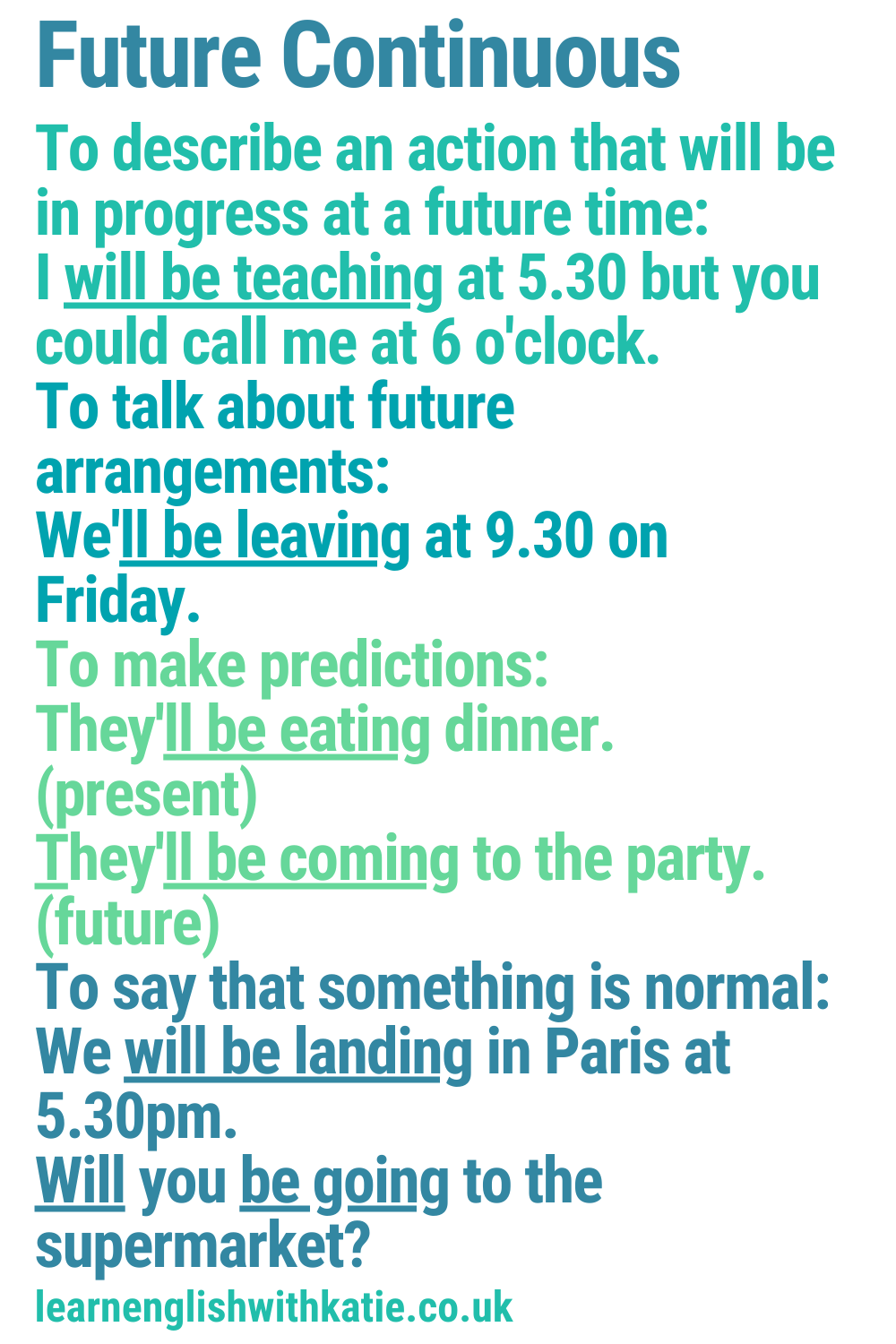|
Some time ago, I did a series of posts about the different verb tenses in English and I thought it was now time to finish it off. You can click here to see the rest of the series so far. To learn more about simple future tenses, click here. And now, let's look at the future continuous! As with all the other continuous tenses, the future continuous has the idea of an action that will be in progress, or continuing for some time, at a certain point in the future. Formation future continuous = will + be + ___ing Positive: Work: I / you / he / she / it / we / they will be working (Or: I’ll / you’ll / he'll / she'll / it'll / we’ll / they’ll be working) Take: I / you / he / she / it / we / they will be taking Negative: Work: I / you / he / she / it / we / they will not be working (I / you / he / she / it / we / they won’t be working) Take: I / you / he / she / it / we / they will not be taking Questions: Work: Will I / you / he / she / it / we / they be working? Take: Will I / you / he / she / it / we / they be taking? Uses 1. To describe an action that will be in progress at a future time: This time next week, I’ll be lying on the beach! I will be teaching at 5.30 but you could call me at 6 o'clock. 2. To talk about future arrangements: We'll be leaving at 9.30 on Friday. I'll be helping at the craft fair on Saturday. (This is sometimes used instead of the present continuous. See this post.) 3. To make predictions: Don't phone now. They'll be eating dinner. (present) I expect they'll be coming to the party on Saturday. (future) 4. To emphasise that something is normal: We will be landing in Paris at 5.30pm. Enjoy the flight. (Calm and reassuring. Everything is normal.) Will you be going to the supermarket on your way home? (This is not a request for you to go to the supermarket. I'm asking if you will be going there anyway. I don't want you to change your plans for me.) Remember, there are a number of verbs which describe states, not actions, and these are not usually used in continuous tenses. For example: understand, love, know, believe. So the future continuous is only used with actions. He will be believing. (non-action verb) ❌ He will be working. (action verb) ✔️ Would you like free lessons and tips for learning English sent straight to your email inbox? Click the button below and sign up:
1 Comment
Your comment will be posted after it is approved.
Leave a Reply. |
About the blogFollow the blog for mini lessons and tips on how to improve your English. Categories
All
Archives
July 2024
|

 RSS Feed
RSS Feed
